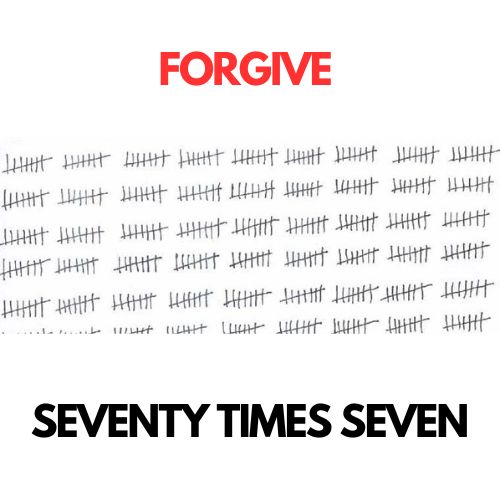The epic story of Joseph in the last chapters of Genesis juxtaposes man’s plans against God’s sovereignty, beautifully illustrating the fact that His ways are often mysterious yet always better than ours.
Reading Joseph’s journey never fails to offer encouragement and hope, but also begs the question – how do we truly forgive the unforgivable? Joseph was the naive, young son of Jacob. To the rest of his brothers, he was the father’s favorite a.k.a. the teacher’s pet – and no one likes a teacher’s pet. Joseph was effectively disowned by his own brothers, hurled into a pit, left for dead, and then sold as a slave, for no apparent fault of his own.
Then, when he worked his way up the ladder of success in his forced career, his boss’s wife wrongfully accused him of inappropriate behavior and landed him in jail, again for no fault of his own.
Yet, when God pulled him out of these dire situations, he not only rescued his boss’s household, his own family, and two whole nations from what could’ve been a fatal famine but wholeheartedly forgave everyone who played a role in his seemingly senseless suffering.
I want to examine this story from 2 points of view; that of the forgiver and the forgiven / ‘forgivee‘
Forgiving the Unforgivable : Forgiver’s POV:
How do I forgive someone who has hurt me deeply?
1. Know your place. Genesis 50:19 – “Am I in the place of God?”
This question lends perspective to who and what we are. We’re not the judge of hearts. We forgive because we don’t and can’t replace God as anyone’s judge. When the person who hurt us apologizes (whole- or half-heartedly), we may start to feel pride, like we’re the better person deep down and fully deserving of an apology. Our egos can get in the way of true forgiveness and cause us to hold grudges or remain bitter longer than we may even intend to. That’s the nature of the beast – the more we feel incapable of forgiving, the angrier and prouder we become, turning into the opposite of what God called us to be. He called us to be like His Son, willing to lay down His life for those who hurt and even hated Him. We have already been forgiven and must likewise forgive others [think of the parable of the debtor in Matthew 18:21-35]. If nothing else, it helps to remember that we’re all human and have the same capacity as anyone else to do great evil, given the right circumstances.
2. Remember you’re a vessel. Gen 50:20 – “You intended to harm me, but God intended it for good…to save many lives.”
Whatever life may throw at a person who loves and serves the Lord, ultimately can be used by God to bless not only the person but those around them. The good, the bad, and the really ugly; all lead to the fulfillment of God’s divine and fully thought-out purpose in His grand scheme of things.
Forgivee’s POV: How do I accept that I’m fully forgiven and start growing from my mistakes?
The short answer to this question is this: do NOT succumb to guilt. Why?
1. Guilt is a form of unbelief. Genesis 50:15 – “But now that their father was dead, Joseph’s brothers became fearful.”
Although Joseph’s brothers had lived lavishly in Egypt for so long, when Jacob died they immediately doubted Joseph’s motives and feared for their lives. This fear may have been justified if Joseph was in fact ruthless and gave them reason to doubt his kindness. However, Joseph had welcomed and let them live in luxury for, not days, but years, before Jacob died. Doubting the authenticity of the forgiveness implies doubting the goodness of the forgiver. It’s true we can be wary of the goodness of strangers, but Joseph was their family, God is our Father. Doubt in this case is more of a slap to the forgiver’s face than just uncertainty.Job in the Old Testament didn’t doubt God’s goodness or his own standing with God, despite the literal hell he went through.Satan has wanted mankind to doubt God’s goodness ever since Eden. He began by asking Eve in Gen 3:1-5 “Did God really say…?” and went on to undermine God’s generosity in Eve’s mind while tickling her foolish pride.
2. Guilt separates you from the Forgiver. Genesis 50:16 – “So they sent this message to Joseph: ‘Before your father died, he instructed us’”
A forensic psychologist studying this exchange will tell you that the way Joseph’s brothers said “Before your father died…” puts distance between themselves and Joseph. They all shared the same father and could’ve said ‘our father’, which would have made more sense. This is a common strategy used by guilty parties to separate themselves from the persons they’ve hurt and calm their conscience.
Guilt is a self-made wall we often build between ourselves and the one (or the One) who forgave us. We cause ourselves to lose out on the fellowship and love of the forgiver. The Prodigal Son could’ve decided to feel guilty forever, believed all he was worth was the pigsty, and never returned to his father.
We could feel so guilty and unworthy, deciding (like Judas Iscariot) that we aren’t worth being forgiven; forgetting Christ called us His friends and forgave our sins when He died for us KNOWING all of our past, present, and even future mistakes.
Acts 26:18 states, “…Then they will receive forgiveness for their sins and be given a place among God’s people, who are set apart by faith in me.” True forgiveness doesn’t end with the act of forgiving – the point is to reconcile the wronged with the wrongdoer so that both parties can continue to enjoy each other’s company and fellowship. Forgiveness bridges that gap – which is exactly what Christ’s sacrifice did for all who continue to believe in His authenticity and goodness.
MEME OF THE DAY

